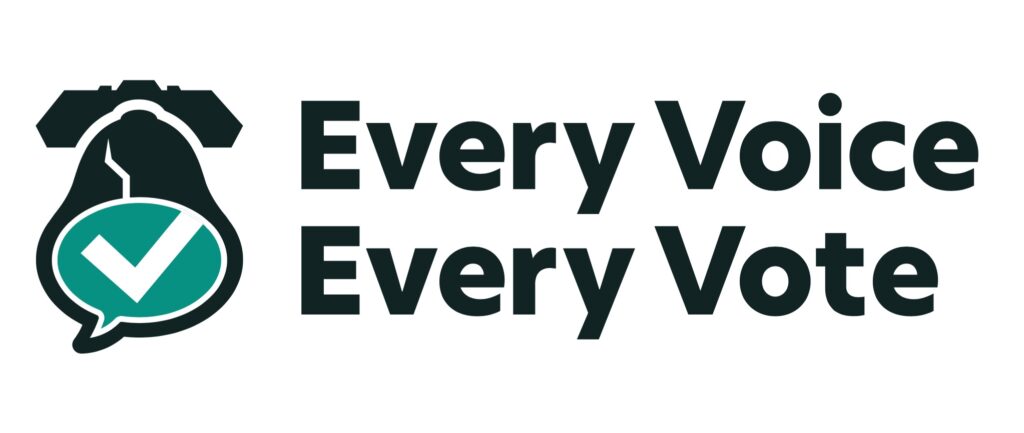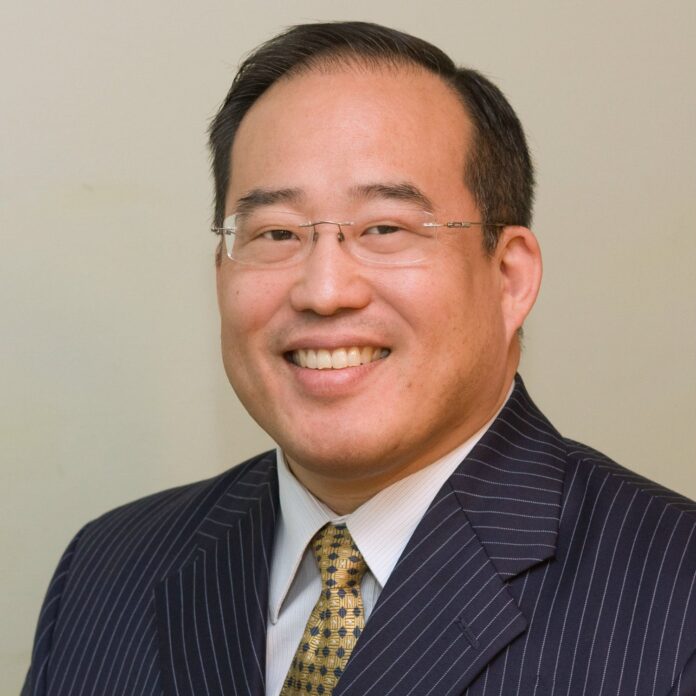David Oh announced his resignation from City Council in February to run for mayor. The former councilmember-at-large is the only Republican candidate in the race and will face off against the Democratic winner of the May 16 primary this November. Oh’s campaign website lists his priorities as public safety and crime, education reform, jobs and economic prosperity, running a “government that serves the people,” and fiscal responsibility and tax reform.
Some responses from Oh’s March 9 interview have been edited for length and clarity.
What are the challenges facing Philadelphia’s LGBTQ community, and how will you address them?
One is violent crime. It’s a big problem for everyone in the city, as well as the LGBT community, because nobody wants to get shot, stabbed or hurt. And it’s really restricting quality of life. The community wants to be out. They want to go to all the great things in Philadelphia that are stimulating and fun. But they also want to be productive and they want new opportunities. But the crime, and quite frankly, the filth — the lack of safety is really limiting people’s ability to enjoy where they live.
The second is adversity, discrimination and prejudice. People [should] feel safe and feel secure that they can access the government to protect their rights whenever they may feel that they’re being violated. And that creates, I think, an atmosphere where the community feels that they’re appreciated, they’re wanted. And it sends a message to the rest of our citizens. We have an LGBTQ association in our police force. And as I have done with other communities — like the Brazilian community, the Spanish-speaking community [and] the Asian community — when there have been threats or hate acts committed, I’ve engaged the police commissioner, the upper brass, [and] the people around the specific communities to provide a level of temporary intensive services to the community, but highlighted with people from that community who are in the police force.
So for example, when there was the recent issue about violence and hate acts against the LGBT community, [I did not] contact the police without checking if the community wants it, if the businesses want it, if they want to have that conversation to say to the police commissioner, for example, “This is what we would like, this is what we don’t want. We don’t want to have a lot of police in our community. That might be counterproductive, but we would like some police in our community, maybe on foot patrol.” And in this particular case, that whole issue died out. And we never moved forward with it because nobody really felt it was important to do. But I think those are the kinds of things that the city can do to provide its services.
What LGBTQ community leaders and organizations have you worked with in the past?
Mark Segal is the first person who comes to mind [as well as] Malcolm Lazin. [I also worked with] Gloria Casarez, Nellie Fitzpatrick, and finally, Jonathan Lovitz. And I can’t remember the other people because I did work with them around a particular issue, which surprisingly to me, really didn’t go anywhere. I was doing the minority business inclusion laws we have in Philadelphia, and they should be reformed kind of more like Atlanta does, which is to [evaluate] minority businesses every three years because you want to build businesses that hire people, not kind of just simply have businesses that get on the books politically and just stay there for like 30 years, which basically shuts down other opportunities for minority and women contracting. We want to strengthen communities that have faced discrimination and had to adapt to unfair practices. But it’s kind of a complicated situation, I think, if people look at it as kind of like the glass is half empty, as opposed [half] full. So, as I said, I think it’s very important that we’re engaged continuously in growing our economy and creating new economic opportunities. But if people look at it, as there’s only so many slices of pie, it becomes, I think, very negatively competitive. But anyway, I did try to do that. But that did not materialize.
In light of the numerous mass shootings, including at Club Q in Colorado and the many mass shootings in Philadelphia, what confluence, if at all, do you see between the issues of hate crimes and gun violence? And how does your approach to gun control address that?
There is a very limited role for city government. I support sensible gun ownership and common sense gun reporting and transparency rules. But I don’t see the point in making laws that are powerless. Quite frankly, I think they do more damage than good. We have to work with our state legislature or we have to work with our federal officials on those issues, or if you want to take it into court, that’s something that can be done. But you can’t do it through a city ordinance. What you can do, however, is enforce the law and focus on people who misuse their guns intentionally. I understand there’s issues about gun-ownership laws, which the Court said, for example, that just because an officer sees someone with a gun, it doesn’t mean that you can go conduct your investigations. [You can only investigate if] you can assume that gun is illegal. However, I think it defies common sense that when people are otherwise breaking the law, that their gun is not possibly illegal, right? So there’s ways that we can investigate that. But [for] anyone with an illegal gun, that gun will be removed. There should be no tolerating any type of illegal weapon. And for the young and impressionable, I think it is important that we do not tempt them or encourage them to make bad decisions and act out.
Guns make everything easier. You just point and pull. So we have so many crimes that are being committed because someone, a 13-year-old or 14-year-old, can pull out a gun with an extended magazine. And that applies to hate crimes. Whether it is attacking someone, breaking their window, yelling at them, or for assaulting them, it’s facilitated by having a firearm. The use of firearms means that they can hurt people or kill people from a distance. And they could do a lot more damage. So there’s a serious connection between firearms and hate crimes. And it also creates a kind of a public-safety problem. We have to be alert to that. We have to use technology that identifies if people are carrying weapons. We have to take every precaution with our police, and our police have to be well-trained and responsive.
How will you address the issue of violence against trans women, specifically trans women of color?
Well, for me, the places where that is going to be more likely to happen is where trans women of color gather. And we certainly want to work with the community — with its media, organization, nonprofits [and] interested persons to make sure that they are alert and aware about what is happening in terms of their safety. We have to have our police department and our law enforcement people aware and alert about the potential issues [and] dangers. We have to have them engaged with the community as a friend, so that vulnerable persons or potentially targeted persons are talking with them, are communicating with them, and feel comfortable to call upon them. And then we have to send out our visible uniformed police officers to those gathering locations. And I think that is practically the best thing that we can do. And I think it’s also that when we show visibly that we’re there to serve and protect, that sends a message to people that this is not a city where you can just come in here and assault, attack or shoot at people.
Why should the LGBTQ community give you their vote?
If people are interested in addressing violent crime through proper policing and the kind of policing that is really focused on serving civilians, then I think I am a good choice. I have not changed my opinion. My opinion is based on my lived experience here in Philadelphia and being quite familiar with crime. I’ve served in the Philadelphia District Attorney’s office. I did criminal offense. I did employment discrimination. I had done those types of things. I think I come from a background where on the issues that I’ve talked about on making our city safe, making our public transportation safe and clean, and dealing with our other governmental bodies as a mayor. I did the bill to fund the Housing Trust Fund $50 million a year, when it was otherwise only at about 17 million. And that bill failed. And so I’ve done different things. They have failed [for me] as a legislator, but I believe I will succeed as a mayor.
I [want to make] Philadelphia an exciting city, a more global city, a city with a great nightlife that is very safe and modernizes the city. Those types of things are very attractive to people in the LGBT community. I do take health care seriously. I will certainly have somebody from the LGBT community involved with our health department and how we interface in the city and incentivize health services.
I’ll just say that upfront, for those who care, I am not in favor of heroin injection sites. [I] don’t believe in them [and] don’t find that they work. I don’t believe in enabling people to remain in misery. But in terms of those who want to have a chance to get away from drug addiction, I’m all for that as many times as they try, as many times as they fail, as many times as they try again.
I think in many situations, the government takes a supportive role [in hearing] from the community what they want. In terms of how they want it delivered, I think I’m a person who can do that. I don’t try to be an expert on something I’m not an expert on. But I do try to put the people who are respected within the community to basically run those types of things on behalf of city government. I will deal with things like fiscal responsibility and otherwise how to raise money and how to reduce burdens on people within our city.
I don’t necessarily tell people what they’d like to hear. I try to tell people where I am, and I like to be open minded about things. I think that our city right now, through good intentions, has gone into many areas that are not core services. That’s why people see potholes all over the roads, and they see poorly maintained sidewalks, and they see violations of city ordinances all over the city every day. Trash isn’t picked up. Services aren’t being done. Illegal dumping is everywhere. Illegal tractor trailers are parked. Those are all violations. We are not enforcing the basic things. And then on top of that, we have to take care of people’s needs, vulnerable populations, [and] things like that. But the subway system is not a shelter. It’s not a drug treatment center. It’s not a hotel. And therefore I would not have any of those things. I think there’s a place for that. And how we do that in an orderly fashion is what I offer. And I think I’ve been innovative, certainly more so than my colleagues on the economic growth, the intellectual property, and definitely on the creative arts economy for jobs and opportunities, but also for enjoyment and entertainment.
For more information about David Oh, visit davidoh.com.


